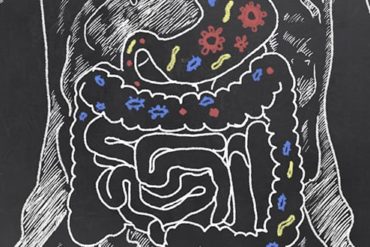The esophagus is the muscular tube which carries food from the mouth to the stomach. On its route to the stomach, the esophagus travels through a small hole in the diaphragm known as the hiatus.
A hiatus hernia occurs when part of the upper stomach is squeezed upwards, and protrudes (herniates) through the diaphragm. There are two types of hiatus hernia: the sliding hiatus hernia, and the para-esophageal hiatus hernia.
Symptoms
Most people with hiatus hernias do not experience any symptoms due to the small size of the protrusion. In more serious cases, shortness of breath, dull chest pains and heart palpitations are present. As hiatus hernias increase the likelihood of Gastresophageal Reflux Disease (GERD), more commonly these are the symptoms which need to be addressed.
Causes
The exact reason hiatus hernias occur is currently unknown, although it is thought to be related to the diaphragm weakening with age, and too much pressure from the abdomen. Men and women over the age of 50 years, overweight people and pregnant women are most likely to be affected by hiatus hernias.
Treatment
Usually no treatment is needed as this type of hernia does not cause any discomfort. If treatment is needed it is usually to combat GERD.
Once it has been clarified that acid reflux is causing you discomfort, you will be prescribed medicines such as antacids, H2 blockers or proton pump inhibitors, which control the acid levels in the stomach.
Through lifestyle adjustments, it is possible to minimise and even treat the uncomfortable symptoms associated with GERD. Identifying foods and drinks that trigger painful symptoms and removing them from the diet is an effective treatment.
In addition to this, regular exercise practices such as walking, cycling and swimming are advised. Raising the head of your bed by four to six inches and not lying down for two hours after eating is also recommended.
GERD foods
- Foods to avoid: chocolate, coffee, fizzy drinks, spicy foods, citrus fruits and drinks, tomatoes, fatty foods, large meals, alcohol
- Foods to eat: weak herbal tea, still water, squash, whole grains, lean meats and fish, vegetables and fruits like bananas, apples and melons
In addition to these foods, it may be helpful to practice eating smaller, more frequent meals, leaving two to three hours between eating and going to sleep, and cutting down on extreme exercising.
If your problem persists after lifestyle changes and medicines have been tried, laparoscopic nissen fundoplication (LNF) surgery can be used to treat sliding hiatus hernias.










